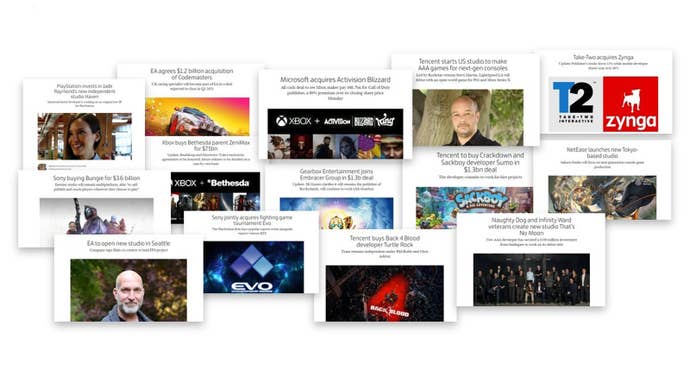Sales appear to be better than ever, but you’ve no doubt seen the headlines.
Spider-Man 2 was Sony’s fastest-selling game.Starfieldbroke Bethesda records.
But then there have been those other headlines.

You’ve seen them, too.
860 layoffs at Epic.
1800 redundancies at Unity.

Nearly 700 at EA.
What the hell is going on?
The pandemic boom
In 2019, the video games industry was strong and growing.

It was all very normal.
And declines in the console space were easily being made up by mobile games.
According to data firm Sensor Tower, the global mobile games market grew 13% in 2019.
All of this attracted investors into games, who spent money hoping to find the next big hit.
But then 2020 happened, and video games exploded.
Mobile games revenue grew 26 percent worldwide, per Sensor Tower.
But mobile gaming grew again, this time by over seven percent.
In other words, the games industry was making a lot of money.
And it started to spend it - prompting three things to happen in excess.
First, games companies began staffing up.
They were adding new teams, commissioning more games, and even forming new studios.
Then there were the acquisitions.
But there was one big challenge through all this - not enough experienced people to make all these games.
Developers were struggling to find senior producers, creative directors, art directors, technical directors and so on.
And as a result, there was a war for talent.
Games companies offered better wages and more benefits to attract people to them over their competitors.
The post-Covid hangover
The talent challenge aside, it was party time for video games.
But then the music stopped.
The rising cost-of-living would naturally impact people buying games.
But cost-of-business is a particular challenge in video games.
Games execs toldGamesIndustry.bizthat they don’t think players would tolerate a further price hike.
This meant the cost of making games was spiralling upwards even more than it was before.
Spider-Man 2’s reported budget of $300m was three times that of 2018’s Spider-Man 1.
Put simply, developers were seeing game sales fall, while costs are increasing.
And that was a real problem.
Video games at a crossroads
There are other challenges.
There were over 14,000 games published on Steam last year.
The console space isn’t growing.
Now, it thinks it will sell 21m, and PS5 is trending behind PS4.
Xbox Series X/S are also struggling, with console sales down in 2023 vs 2022.
New players have come in, but almost as many have ‘aged out’ of consoles.
Meanwhile, the mobile games space has hit challenges after a decade of near-constant growth.
Lastly, there’s the situation with live-service games.
Games companies are not just competing for money, they’re also competing for time.
And gamers are spending hundreds of hours in games like Fortnite, Roblox and Call of Duty.
The top-performing live service games every year tend to be the same.
The great correction
As a video game company exec might say, business is facing severe headwinds.
That’s what has led us to these mass layoffs.
It’s a situation that has been dubbed a ‘correction’.
The layoffs will slow down.
But the pain isn’t over.
This level of uncertainty has spooked investors.
Meanwhile, publishers are being more selective on the games they sign due to the competitive market.
The anger towards executives, shareholders, and capitalism in general, is more than understandable.
Holding out for a hero
Is there any hope?
It’s not clear what, if anything, will excite the games market this year.
Meanwhile, some of the industry’s recent investments haven’t delivered the results some had hoped for.
VR has found an audience, but a small one.
Streaming is also a long way from being significant.
But the technology and the business model simply aren’t there yet.
Switch 2, when it finally arrives, should provide a short-term boost to the business.
Epic’s investment in Fortnite as a place to play and discover new games is also interesting.
And then there’s AI.
It’s a controversial topic, with significant ethical and legal conversations to be had.
The video games industry faces its first major crisis in 40 years.
It’s an unprecedented and brutal situation.
But if there’s one thing that gives me hope, it’s the games themselves.
Over the last year, we’ve seen some astonishing video games come out.
The quality of what developers are making has never been better.
And gamers are buying them in their millions.
The industry’s foundations are strong, and it will bounce back.
It comes out every day and covers all the big developments in the games business worldwide.